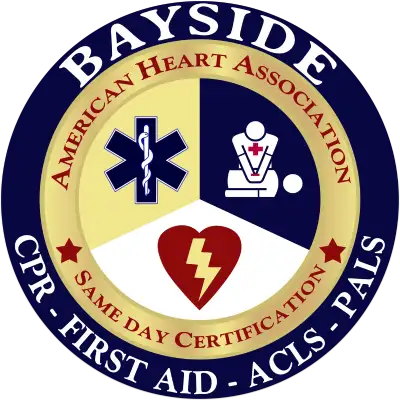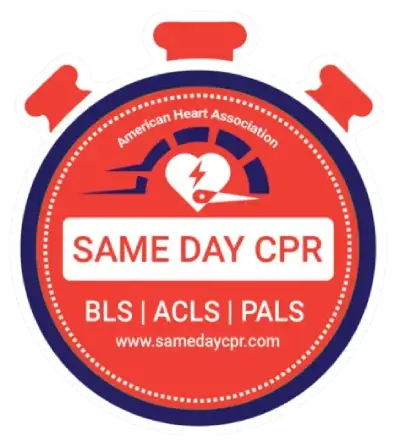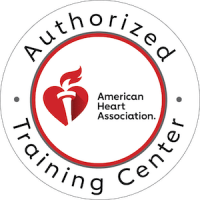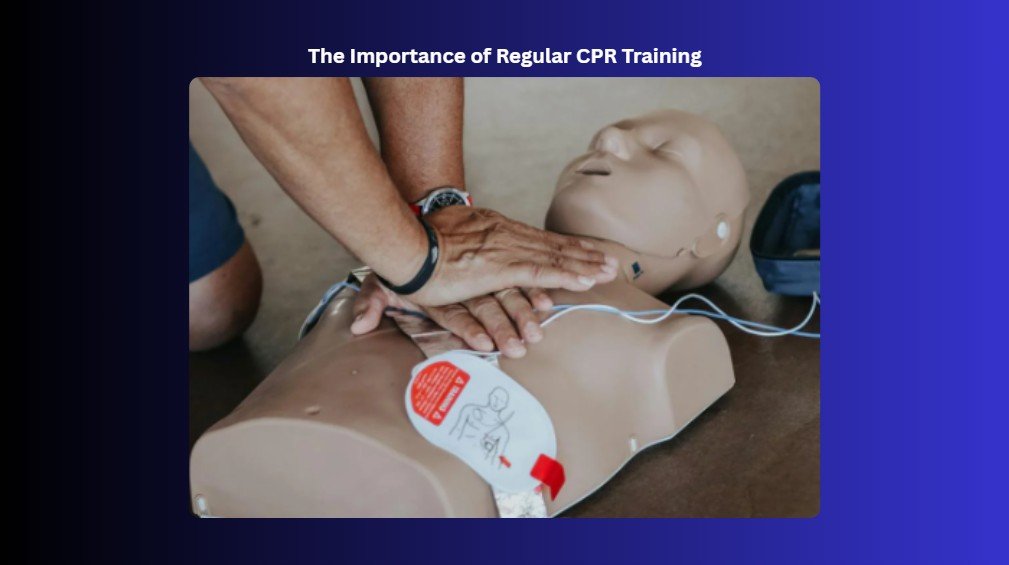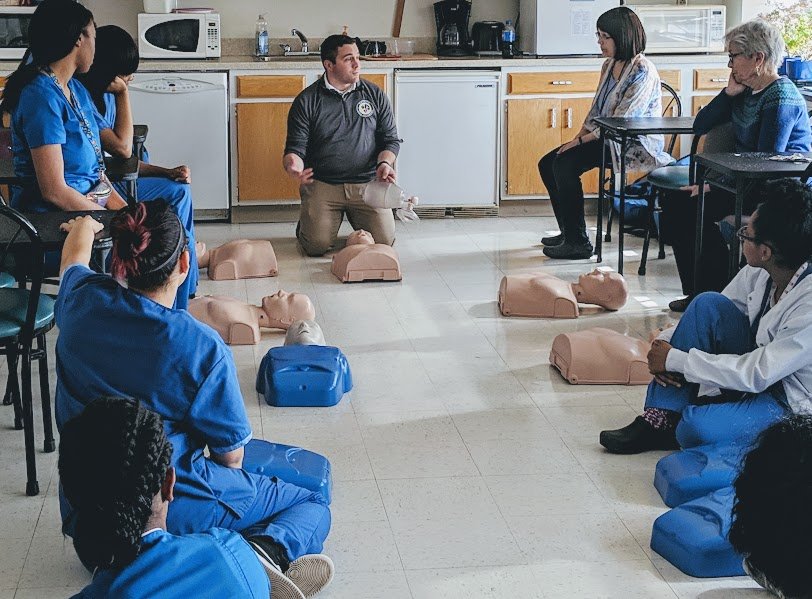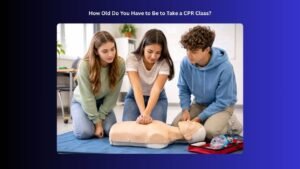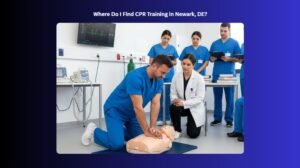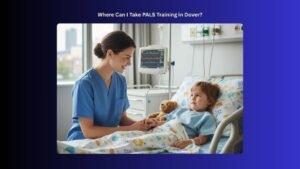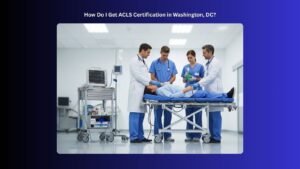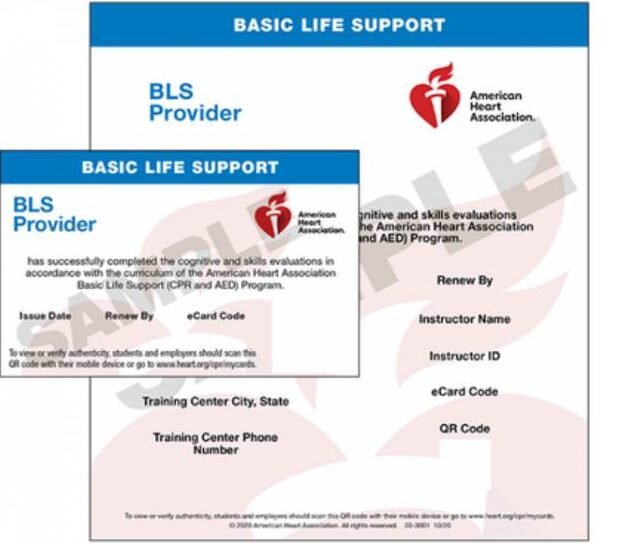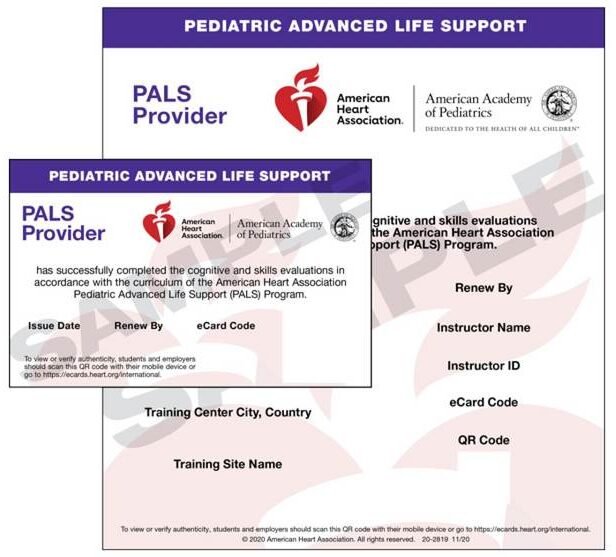Someone falls, gasps, or suddenly stops breathing, and everything else fades into the background. In those critical moments, the difference between hesitation and action can mean the difference between life and death. You simply cannot afford to waste any time. That’s when your CPR memory comes to the rescue. In an emergency, it’s not just what you know, but how quickly and confidently you can act. That kind of response doesn’t come from a one-time training; it comes from regular practice.
That’s why ongoing CPR training is so important. It refreshes your skills, reinforces correct techniques, and keeps you updated on the latest guidelines. Beyond skill retention, regular training builds confidence and helps reduce panic or hesitation, enabling you to respond calmly and decisively when it matters most. If you’re preparing for the CPR certification exam or simply want to stay sharp, it’s a good idea to refresh your CPR course every 6 to 12 months. While this is essential for healthcare professionals, regular CPR training is just as vital for anyone who wants to be prepared, whether in schools, offices, childcare settings, sports, or any other setting.
Keep reading to discover how regular CPR training not only saves lives but also strengthens workplace safety and emergency preparedness.
1. The Evolving Nature of CPR Techniques
CPR guidelines are continually updated to reflect scientific research and medical insights. Organizations like the AHA regularly revise their CPR training protocols to incorporate new findings.
Today’s methods focus on high-quality chest compressions and timely use of automated external defibrillators (AEDs), which significantly improve survival chances. It’s exciting to see how these advancements turn ordinary people into capable lifesavers, ready to step in during emergencies with the latest, most efficient techniques.
2. Benefits of Regular Training
Engaging in CPR refresher courses and regular training sessions significantly boosts confidence and competence in emergencies. Through frequent practice, individuals enhance their skill memory, which reduces hesitation during critical moments, so it’s important to know how often you should practice CPR. This quick and decisive action is vital, as delayed emergency responses can severely impact the outcomes. Moreover, regular CPR training sessions provide several additional benefits:
2a. Updated Skills
Trainees consistently refresh their abilities by staying aligned with the most recent CPR guidelines and basic life support training standards. Regular participation in CPR training classes ensures they’re equipped with the most effective life-saving methods, including correct airway management, chest compressions, and rescue breaths.
2b. Integration of Technology
Participants learn to integrate AED usage with traditional CPR techniques. As AEDs are becoming increasingly common in public spaces, understanding how to use them confidently is essential for effective emergency response.
2c. Increased Survival Rates
Regular CPR training has been shown to significantly improve survival outcomes in cardiac arrest cases occurring outside hospitals. This is because properly trained and CPR certified bystanders are more likely to know how to perform CPR effectively and promptly.
2d. Reduction in Medical Complications
Effective CPR performed immediately after cardiac arrest can help minimize long-term health complications for the patient. Training helps individuals master essential skills such as appropriate compression depth, rate, and timing of rescue breaths to maximize the patient’s chances of recovery.
2e. Empowerment to Act
Regular training empowers individuals to act confidently and without a doubt. Knowing they have the training to back their actions can make all the difference in taking the initiative during an emergency.
2f. Community Impact
On a larger scale, having more individuals trained in CPR increases the overall emergency preparedness of communities, making public spaces safer for everyone.
3. Who Should Undergo Regular CPR Training?
Anyone who wants to be ready to help out if someone suddenly stops breathing or their heart stops beating should consider regular CPR training. Nowadays, an employee or job hire candidate who has CPR certification. These certifications assure you’re ready to provide lifesaving assistance when it matters most.
3a. Healthcare Professionals
Healthcare professionals deal with emergencies every day, so they absolutely need to know CPR. Whether they work in hospitals, clinics, or acute care settings, they must act fast during a cardiac arrest. When every second counts, they can’t afford to hesitate; they need to deliver chest compressions and rescue breaths with confidence. Their quick response can truly make the difference between life and death.
3b. Elder Care Workers
Elder care workers spend their days with people who often have heart conditions or other health risks. When a senior suddenly collapses, they can’t wait for help; they have to jump in and start CPR immediately. By staying trained and ready, they protect the people they care for and keep calm in the face of crisis.
3c. Public Service Employees
Police officers, firefighters, and EMTs show up first when a disaster occurs. They often arrive before medical teams, so they need to start CPR right away if someone’s heart stops. With proper training, they take charge and begin life-saving care without delay, giving victims a real shot at survival.
3d. Childcare Providers
Childcare providers, nannies, and babysitters look after tiny humans who can choke, fall, or stop breathing without warning. Kids depend on the adults around them to act fast in emergencies. When childcare workers know CPR, they stay calm, react quickly, and keep kids safe until help arrives.
3e. Corporate Employees
Workplaces aren’t immune to health emergencies, and cardiac arrest can strike anyone—clients, coworkers, or even visitors. When corporate employees know CPR, they don’t just wait for emergency services; they take action. They help save lives right where they work, and that creates a safer environment for everyone.
4. Practical Aspects of Regular Training
Let’s be real, knowing CPR isn’t just for healthcare workers or lifeguards. It’s something everyone should stay sharp on. But CPR isn’t a one-and-done kind of skill. Like any hands-on technique, it fades over time if you don’t keep practicing. That’s why regular CPR training matters.
4a. Confidence and Skill Retention: Regular CPR training keeps your skills fresh and builds your confidence. When an emergency hits, you won’t freeze; you’ll act quickly and correctly because your hands already know what to do.
4b. Improve Result: Frequent practice helps you respond faster and more accurately, which can seriously boost survival rates. You give someone a real chance at life just by staying sharp.
4c. Personal & Society Benefit: Knowing CPR makes you a valuable person to have around. You’re not just protecting your loved ones; you’re stepping up for your community when it matters most.
4d. Work Environment Safety: When more employees know CPR, the whole workplace becomes safer. You create a culture where people look out for each other and feel ready to respond.
5. Why One-Time CPR Training Isn’t Enough?
Many people complete CPR training once and assume they’re now completely prepared for emergencies. But in reality, CPR skills can fade within just a few months if not practiced regularly. You can easily forget even the key steps, such as the correct hand placement, compression depth, or the rhythm of chest compressions.
Even experienced responders can feel uncertain or freeze during a real event without regular refreshers. In a life-or-death situation, hesitation can cost precious seconds that could save a life. Regular training helps keep the procedure fresh in your mind and builds the instinct to act immediately.
Upgrade Your CPR Skills & Technique: Renewal Classes
In summary, CPR is not a “learn it once, and you’re good” skill. It takes regular practice to stay sharp, confident, and ready to act when it counts. In an emergency, there’s no time to second-guess yourself; you need to move fast, and that only happens when the steps are second nature. By keeping up with CPR training, you’re not just brushing up on technique; you’re preparing to save lives. Whether you’re a healthcare worker, teacher, parent, or office employee, staying trained means you’re always ready to step in and make a real difference.
Start making an impact by enrolling in a CPR course today. Bayside CPR offers quick, flexible training designed for busy professionals. The course includes a brief online portion followed by a 30-minute in-person skills practice available at more than 60 locations. You can obtain your AHA certification in ACLS, BLS, PALS, CPR, or First Aid and get your certification card on the same day.
Also Read About: Difference Between CPR & BLS
